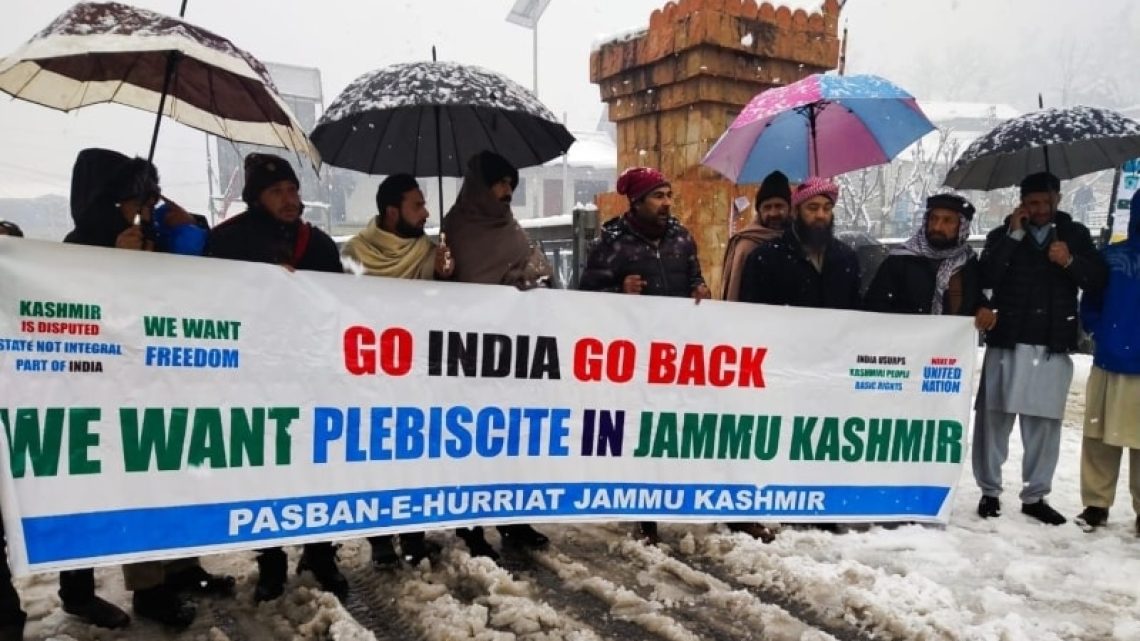
Civil Society Calls for International Intervention to End India’s Occupation of Kashmir
March 11, 2024Members of the civil society in Kashmir have united to call for an immediate end to India’s unlawful occupation of Jammu and Kashmir, urging the restoration of Articles 370 and 35-A in their original form. The gathering, including prominent figures like Dr. Zubair Ahmed, Muhammad Furhan, Muhammad Iqbal Shaheen, and Syed Haider Hussain, took place in Srinagar, where the participants emphasized the Kashmiri people’s fundamental right to self-determination.
As reported, the civil society representatives denounced recent false claims by Indian leaders asserting that occupied Jammu and Kashmir is an integral part of India. They maintained that the region has never been and will never be integrated into India, challenging the misleading narratives propagated on the international stage.
In their meeting, the civil society members labelled India’s so-called peace initiatives as veiled aggressive policies, highlighting the continuous threats to regional peace and stability due to the military and police siege imposed on the people of the territory. The members stressed that Jammu and Kashmir remains an internationally recognized disputed territory and called on New Delhi to refrain from making false and misleading assertions.
The urgent demands put forth by the civil society include an immediate cessation of atrocities, the restoration of Articles 370 and 35-A, and a resolution to the Kashmir dispute in line with United Nations resolutions. Emphasizing the importance of international recognition, they urged New Delhi to end gross human rights violations, allow access to independent organizations, and adhere to its international human rights obligations.
Additionally, the members underscored the significance of building a robust legal case against India, showcasing the existence of a legal argument in favour of the Kashmiris. They condemned India’s commission of crimes against humanity in the Indian Illegally Occupied Jammu and Kashmir (IIOJK) and reaffirmed Kashmir’s status as an international armed conflict and a case of illegal occupation.
Denouncing India’s actions in Kashmir as a violation of international law, the civil society members argued that armed resistance in IIOJK is not only legitimate but also legal under international law. They emphasized the principle that where there is occupation, there is resistance, and the right to liberation is a political and fundamental right that must be recognized and respected.
In conclusion, the unified voice of the civil society in Kashmir calls for international intervention to end India’s occupation, seeking justice, recognition of their rights, and a resolution to the longstanding Kashmir dispute in accordance with international norms and agreements.

